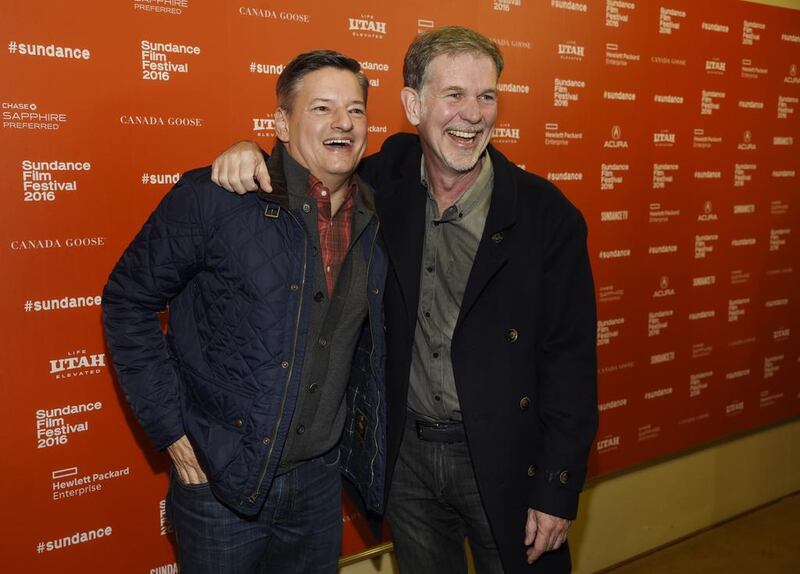It’s not all about big subscription numbers for Netflix.
The online streaming service has branched out to make a name for itself as a producer of quality localised content from all over the world.
That’s the message that chief executive Reed Hastings delivered as far back as December’s Dubai’s International Film Festival.
As well as taking the online broadcaster to 200 international markets, indigenous content has already gone into production to meet the needs of the diverse global markets.
“We’re now launching our first foreign-language shows,” says Hastings from Netflix’s European headquarters in Paris.
"This week we are announcing Dark, our first German-language production, as well as previewing Marseilles, our first show in French, created in France. When I spoke at the Dubai Film Festival I said my intention and desire is to find a great scripted series for the Middle East and that remains the case. We've already been out there shooting War Machine [the Brad Pitt drama with scenes shot scenes in Abu Dhabi and Ras Al Khaimah last year], so we know for a fact the infrastructure and talent is in place."
So can we perhaps expect to see Netflix returning to Diff this year as a local-content producer?
Not so fast, cautions chief content officer Ted Sarandos: “As a buyer, for sure,” he says. “I can’t guarantee our first local film by then, but we’ll certainly be represented in some capacity.”
Netflix has perhaps found itself in a strange place since it launched in the region. There is no doubting its cache as an international broadcaster and producer, thanks to multi-award-winning shows such as House of Cards and Orange Is the New Black.
As a relative latecomer to the local market, however, Netflix is in the unusual position of finding that many of its most popular shows are already contracted to other local broadcasters. Both of the above-mentioned shows are screened by the Dubai-based subscription broadcaster OSN, while last year's Eli Roth-directed Hemlock Grove was sold to Starz Play, which beat Netflix to a regional launch.
Hastings insists this is in the process of changing: “All of our in-production shows and new original content we have under global licence now,” he says. “Remember that when we first launched, we weren’t doing our own original programming and we weren’t in these other territories. They were such expensive propositions, so I guess we hedged our bets a little by selling properties.” Such a cautious approach resulted in the UAE’s Netflix content languishing at 188 out of the 200 countries the service now screens in, according to the technology website theverge.com
“Every year we improve the content. We’ve done that all around the world, everywhere we go, and that will happen with the UAE, too,” Sarandos says. “[Netflix content in ] the UAE may be thin right now compared to what is available in some other territories, but it’s still abundant compared to what was available before, and we’ll just keep growing and growing – rapidly.”
Hastings adds: “Over a couple of years everyone will forget that we entered the market when we did. There was plenty of content anyway just in the first two months since launch, but sure, we have to add enough to keep that going and keep adding, and we will.” This leads to the issue of Netflix’s current clampdown on VPN use by those in its new territories.
It has been widely reported that subscribers have been accessing the US or UK versions of the service for years via ISP masking software.
Netflix has limited this practice through its army of software specialists.
“Our goal is to make it all global content,” Hastings says. “This is so everyone in the world has access to all the shows and nobody needs to use a VPN. ”
cnewbould@thenational.ae





